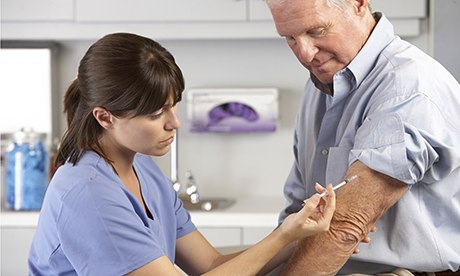
Planning a once in a lifetime trip to a far-flung destination, or just seeking some winter sun? Make sure you check with your GP about vaccinations and save hundreds of pounds compared to costly last-minute private clinics.
Travel insurers are warning that too many holidaymakers are failing to get vaccinated – and that an insurance policy won't pay out if they then fall ill.
Almost one in four British holidaymakers does not get vaccinated before going abroad, despite travelling to areas that have life-threatening infectious diseases, according to the NHS.
A spokesman for travel insurer Direct Line said that although it considered claims on a case by case basis, "it is true that it could invalidate your policy if you contract a tropical disease and have not had the required innoculations before travelling".
A claims specialist at insurer More Than added: "We would not cover any expenses incurred as a result of a tropical disease if the policyholder has not had the recommended innoculations and/or taken the recommended medication."
Note that travellers crossing through parts of Africa and South America, perhaps on a gap year, won't be let in to some destinations unless they have a yellow fever vaccination certificate.
The first step before travelling is to call or visit your GP, who will give free, up-to-date information on the vaccinations required and check your records to see if your UK jabs are up to date. Ideally, check with your GP eight weeks before travelling, as some vaccinations take that long for the whole course of doses to be given. But if you decide to travel at the last minute, still take advice – even one jab from a course will give you more protection than none.
Free advice is also available at NHS website fitfortravel.nhs.uk, where there are details of immunisations needed for specific countries and up-to-date malaria maps. Also look at the National Travel Health Network and Centre website at nathnac.org; and netdoctor.co.uk.
Your GP or practice nurse can give you a booster to your UK jabs if you need one and may also be able to give you travel jabs. It is up to individual GP services whether to offer travel jabs – some may refer you to a specialist travel clinic.
The good news is you may not have to pay for any of the innoculations. Vaccinations against polio (given as a tetanus, diphtheria and polio booster), typhoid, cholera and the first dose of hepatitis A are all free. Many GPs also do not charge for the second (booster) dose of hepatitis A or the combined hepatitis A and hepatitis B vaccine.
For other vaccinations, such as meningococcal meningitis, hepatitis B, yellow fever, rabies, tuberculosis, Japanese encephalitis and tick-borne encephalitis, the NHS says you're likely to have to pay but adds that GPs can choose not to charge you.
We mystery-shopped one GP surgery, and found that we would be charged £40 for rabies, £55 for Yellow Fever and £85-90 for Japanese encephalitis, but all other innoculations were offered free.
You can get travel vaccinations (and malaria tablets) at private clinics, some of which offer walk-in services, which may appeal if you do not want to wait for GP appointments.
We compared costs for travel vaccinations at four private clinics: the UK Travel Vaccination Service travelvaccination.co.uk, which has clinics in London and the home counties, West Yorkshire and the West Midlands; Masta masta-travel-health.com which has 51 clinics around the country; Nomad Travel nomadtravel.co.uk with health clinics in London, Bristol, Cardiff, Manchester and Bishops Stortford; and Trailfinders' walk-in London clinic trailfinders.com, and found that prices varied significantly.

